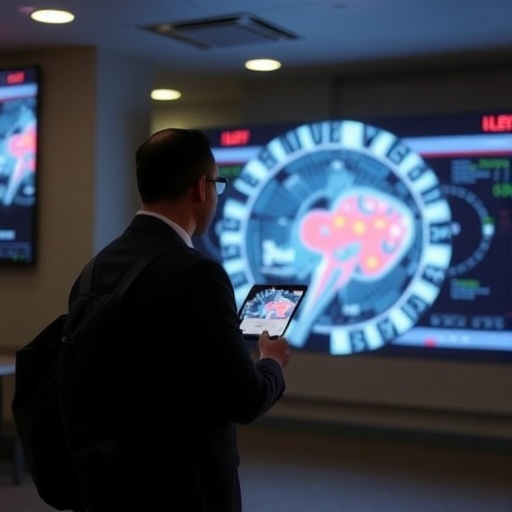
Long COVID has emerged as a significant public health concern, particularly affecting various demographics, including Latino populations. Recent research published in the Journal of General Internal Medicine sheds light on the prevalence and impact of long COVID among Latino patients enrolled at two Federally Qualified Health Centers located in Washington State. This study not only highlights the clinical manifestations experienced by patients but also underscores the socio-economic factors influencing their health outcomes.
The findings from this study are crucial, as Latino communities have historically faced barriers to accessing healthcare. The unique challenges posed by the long COVID phenomenon may exacerbate pre-existing health disparities in these populations. This dual crisis calls for urgent attention from both public health officials and community leaders to address the increased vulnerability of these communities amidst the ongoing pandemic.
Among the patients studied, various symptoms persisted long after the initial COVID-19 infection had resolved. Common experiences included debilitating fatigue, cognitive deficits often referred to as “brain fog,” and respiratory issues that hinder daily functioning. These symptoms were reported consistently, highlighting the need for a comprehensive approach to treat and manage long COVID cases in these communities.
What makes this research particularly notable is the collaborative effort among healthcare providers and researchers to compile data specifically from Latino patients. By understanding the demographic specifics, stakeholders can tailor healthcare services that resonate with and effectively serve these communities. The insights garnered from this study could inform future healthcare policies aimed at improving access and quality of care for Latino patients suffering from myriad long-term effects of COVID-19.
Moreover, the psychological impact of long COVID on patients is profound. Many experienced an increased level of anxiety, depression, and social isolation, particularly among those who were already marginalized. The stigma associated with having COVID-19 also contributed to the mental health burden, as patients reported feeling ostracized from their communities. Addressing these mental health issues is integral to ensuring comprehensive patient support during recovery.
The socio-economic landscape plays a significant role as well, with many individuals struggling to maintain employment due to their ongoing health issues. Financial instability further complicates the situation, as affected individuals may not afford necessary medical care or follow-up visits. Enhanced support systems are essential to mitigate these challenges and help integrate long COVID care into routine health services in affected communities.
This research serves as a call to action, compelling healthcare providers to establish more inclusive frameworks that consider the unique characteristics of the Latino population. Strategies might involve increasing awareness and education concerning long COVID symptoms and their long-term implications. By empowering community health workers, clinics can bolster trust and encourage affected individuals to seek guidance and treatment.
Access to health information in various languages also constitutes a significant component of improving health literacy in Latino communities. Ensuring that educational materials about long COVID are culturally and linguistically appropriate can facilitate better understanding and management of this complex condition. Thus, healthcare systems must prioritize the translation of critical health resources and services.
Telehealth has seen a sharp rise in adoption during the pandemic, and its continued integration can particularly benefit the Latino population dealing with long COVID. Virtual consultations can break down geographical and economic barriers, allowing more patients to access care while avoiding the stigma associated with in-person visits. Health systems should explore sustainable models for telehealth to ensure ongoing support for long COVID patients.
The research additionally emphasizes the importance of further longitudinal studies to track health outcomes over time. Ongoing follow-up care and research will be essential in understanding the full scope of long COVID effects among various demographics. Identifying long-term health trajectories can inform more accurate predictions of healthcare needs, ultimately guiding resource allocation.
In conclusion, the burden of long COVID on Latino patients at federally qualified health centers illustrates a critical intersection of public health and social equity. By illuminating our understanding of this demographic’s experience with long COVID, this study paves the way for more effective, culturally competent healthcare interventions. It serves as a reminder of the multifaceted implications of the pandemic, urging healthcare stakeholders to adapt and innovate in their health service delivery models moving forward.
The challenges posed by long COVID extend beyond just the physical domain, affecting multiple aspects of life for patient populations. Moving forward, it will be imperative to consider these dimensions to create holistic healthcare strategies that encompass medical, psychological, and socio-economic facets. Only through concerted efforts can we hope to alleviate the burden of long COVID on vulnerable populations, fostering resilience in the face of ongoing health crises.
The ongoing research into long COVID among diverse populations is critical for a comprehensive understanding of the phenomenon. This pursuit not only builds an archive of data that can shape future responses to emerging health challenges but also emphasizes the need for vigilant monitoring of health trends among communities that carry the heaviest burdens.
As we strive to comprehend and respond to the evolving landscape of the COVID-19 pandemic, studies like this highlight the significance of tailoring responses to meet the intricate needs of all communities, especially those that have been historically marginalized. Ultimately, the fight against long COVID will require a collaborative approach that harmonizes medical, psychological, and social resources.
Subject of Research: Long COVID among Latino Patients
Article Title: Long COVID among Latino Patients of Two Federally Qualified Health Centers in Washington State
Article References:
Rachid Zaim, S., Castillo, J.D., Cabrera, A. et al. Long COVID among Latino Patients of Two Federally Qualified Health Centers in Washington State.
J GEN INTERN MED (2025). https://doi.org/10.1007/s11606-025-09732-y
Image Credits: AI Generated
DOI: 10.1007/s11606-025-09732-y
Keywords: Long COVID, Latino patients, health disparities, public health, Federally Qualified Health Centers, Washington State.
Tags: access to healthcare for Latino populationsaddressing health inequalities during pandemicclinical manifestations of long COVIDcognitive deficits and brain fogcommunity health initiatives for Latino patientsFederally Qualified Health Centers in Washingtonhealthcare disparities in Latino communitiesLong COVID impact on Latino patientsrespiratory issues from long COVIDsocio-economic factors in health outcomessymptoms of long COVID in patientsWashington State public health study




